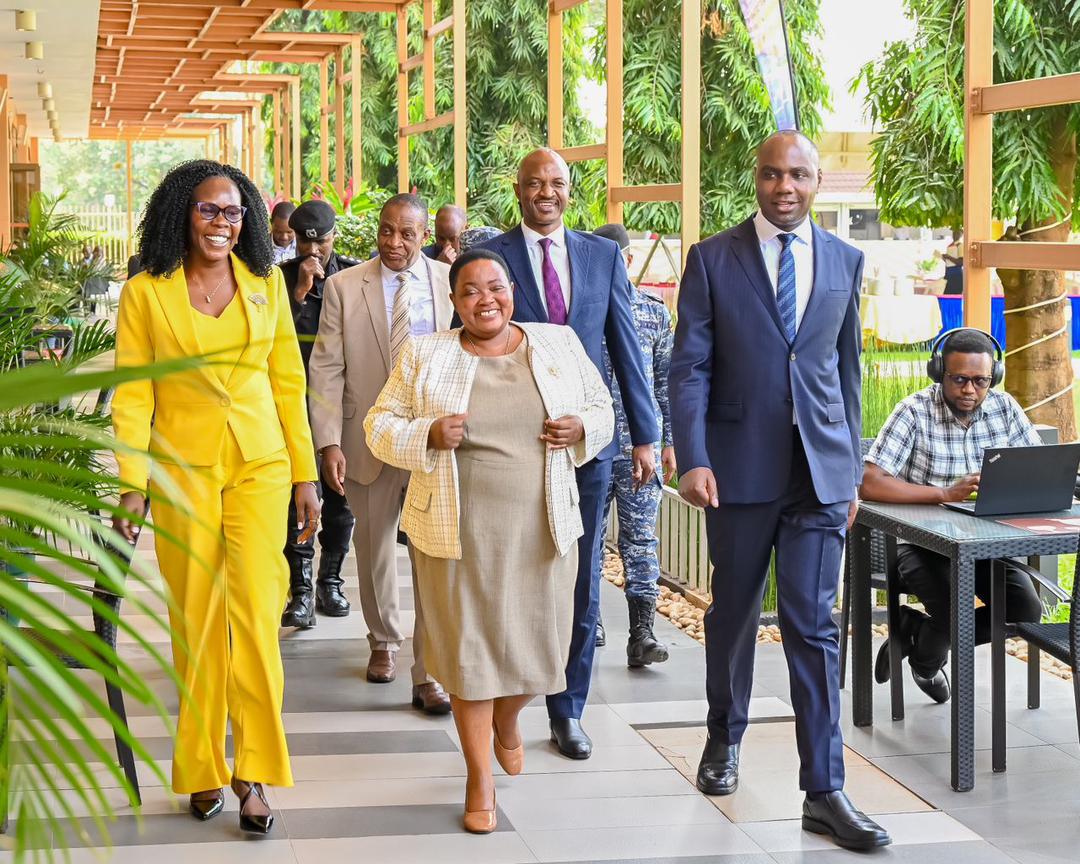By: Derrick Senyonga
KAMPALA
The Rt. Hon. Prime Minister of Uganda Robinah Nabbanja has called on local investors to work with the government to create a tax system that supports sustainable economic growth and development. The Prime Minister made this appeal during a recent conference organized by the Ministry of Finance, Planning & Economic Development on tax policies and tax administration for Uganda Investors at Hotel Africana.
Addressing investors regarding taxes in the country, Rt. Hon. Nabbanja acknowledged the crucial role tax incentives play in stimulating economic activities in key sectors such as agriculture, manufacturing, and technology but cautioned against over-reliance on tax incentives as it is the revenue base that enables the government to finance critical public services.
“The Ugandan investors are the engine of our economy, and it is through partnerships between the government and investors that we can achieve our development goals.
“The NRM government remains committed to creating a tax environment that is conducive to business and fair to all taxpayers,” she said adding that the NRM government was committed to working with all stakeholders to create and build a Uganda that is economically prosperous.
The Prime Minister, who also elaborated on the different tax incentives such as income tax exemptions, tax holidays, capital deductions, custom duty exemptions, VAT exemptions and refunds, free-zone incentives, tax credits, incentives in mining and renewable energy, said that the government continues to review the incentives to ensure that they align with the country’s economic goals while safeguarding revenue collection.
Addressing the gathering, Mr. Ramathan Ggoobi the Permanent Secretary and Secretary to the Treasury (PSST), Ministry of Finance, Planning and Economic Development hailed the introduction of e-tax, the electronic fiscal receipting and invoicing system, eFRIS, saying it was popular and had significantly improved efforts to modernize the tax administration and also improve compliance.
“One of the critical pillars of our tax policy framework is the domestic revenue mobilization strategy. This strategy was launched in 2020, aiming to increase revenue by improving tax compliance, enhance capacity of URA to administer the tax laws and also fostering the culture of voluntary tax payment among the Ugandans,” he said.
He added: “Our goal is to create a tax environment that is conducive to business while also ensuring that government has the resources it needs to fund essential public services. As we look to the future, we will focus on creating a tax environment that supports economic growth, encourages wealth creation and investment, and ensures sustainable business growth.”
The local investors listed several taxes that they felt weren’t favorable to them compared to foreign investors while also asking the government to review the tax incentives given to them.
Rt. Hon. Nabbannja promised to meet with relevant stakeholders including the business community at a later date to develop a better tax framework that benefits both the government and the business community which she will forward to Cabinet for further management.
END






